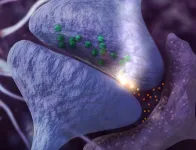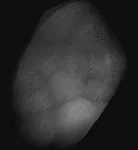(Press-News.org) People with dementia have protein build-up in astrocytes that may trigger abnormal antiviral activity and memory loss, according to a preclinical study by a team of Weill Cornell Medicine investigators.
Dysfunction in cells called neurons, which transmit messages throughout the brain, has long been the prime suspect in dementia-related cognitive deficits. But a new study, published in Science Advances on April 19, suggests that abnormal immune activity in non-neuronal brain cells called astrocytes is sufficient to cause cognitive deficits in dementia. The discovery could lead to new treatments that reduce excess immune activity in astrocytes and their detrimental effects on other brain cells and cognition.
“Astrocyte dysfunction alone can drive memory loss, even when neurons and other cells are otherwise healthy,” said co-senior author Dr. Anna Orr, the Nan and Stephen Swid Assistant Professor of Frontotemporal Dementia Research in the Feil Family Brain and Mind Research Institute and a member of the Helen and Robert Appel Alzheimer's Disease Research Institute at Weill Cornell Medicine. “We found, in mice, that astrocytes can cause cognitive decline through their antiviral activities, which can make neurons hyperactive.”
While neurons have been intensively studied in dementia and other diseases, much less research has focused on astrocytes, which many scientists viewed as playing only supporting roles to neurons in brain health.
“We are very interested in the roles of astrocytes in cognitive and behavioral disorders,” she said. “These cells are prevalent in the brain and perform various key functions, but their involvement in neurocognitive disorders like dementia are poorly understood.”
When the investigators, including first author Dr. Avital Licht-Murava, a former postdoctoral associate in the Orr lab, examined tissue samples from deceased individuals who were diagnosed with either Alzheimer’s disease or frontotemporal dementia, they found an accumulation of a protein called TDP-43 in astrocytes within the hippocampus, a brain region crucial for memory. To understand the effects of this protein build-up, the team conducted a series of experiments in mouse models and brain cells grown in the laboratory. Other senior investigators that contributed to the study include Dr. Robert Schwartz at Weill Cornell Medicine and Dr. Robert Froemke at New York University.
In mice, the build-up of TDP-43 in astrocytes was sufficient to cause progressive memory loss but not other behavioral changes. “Astrocytes in the hippocampus seem to be more vulnerable to this pathology.” she said.
To understand the causes of memory loss at the molecular level, co-senior author Dr. Adam Orr, an assistant professor of research in neuroscience in the Feil Family Brain and Mind Research Institute and a member of the Appel Alzheimer’s Disease Research Institute at Weill Cornell Medicine, analyzed gene expression and found high levels of antiviral gene activities, even though no virus was present in the brain. Astrocytes produced excessive amounts of immune messengers called chemokines, which can activate CXCR3 chemokine receptors typically found on infiltrating immune cells. To their surprise, the team discovered that CXCR3 receptor levels were elevated in hippocampal neurons, and that excessive CXCR3 receptor activity made neurons “hyperactive,” Dr. Anna Orr said.
“Blocking CXCR3 reduced neuronal firing in individual neurons and eliminating CXCR3 in mice by genetic engineering alleviated cognitive deficits caused by astrocytic TDP-43 build-up,” Dr. Adam Orr said. These experiments demonstrate that impaired astrocytes can have a detrimental role in dementia, he said.
Both investigators were excited by the potential clinical implications of their findings.
“For effective therapeutics, we need to consider astrocytes along with neurons,” Dr. Anna Orr said.
Drugs that target the identified immune pathways might help improve cognitive function in people with dementia. She noted that scientists are already testing CXCR3 blockers to treat arthritis and other inflammatory conditions in clinical trials. These drugs could be tested and potentially repurposed for dementia.
This study may also provide insights into how antiviral immune responses can cause cognitive dysfunction. Previous research has linked viral infections to Alzheimer’s disease and to long-term neurocognitive effects such as memory loss and brain fog. Abnormal immune activity in astrocytes might contribute to these cognitive effects as well as increase individuals’ susceptibility to viral infections, which could further worsen brain health and promote some cases of dementia.
The team is currently studying how TDP-43 alters antiviral activities in astrocytes and whether these changes increase brain susceptibility to viral pathogens.
“Astrocytes can promote resilience or vulnerability to brain disease,” Dr. Anna Orr said. “Understanding how they enable cognitive function or cause cognitive decline will be critical to understanding brain health and developing effective therapies.”
END
Astrocyte dysfunction causes cognitive decline
2023-04-20
ELSE PRESS RELEASES FROM THIS DATE:
UC Irvine biologists discover bees to be brew masters of the insect world
2023-04-20
Irvine, Calif., April 20, 2023 — Scientists at the University of California, Irvine have made a remarkable discovery about cellophane bees – their microbiomes are some of the most fermentative known from the insect world. These bees, which are named for their use of cellophane-like materials to line their subterranean nests, are known for their fascinating behaviors and their important ecological roles as pollinators. Now, researchers have uncovered another aspect of their biology that makes them even more intriguing.
According to a study published in Frontiers in Microbiology, cellophane ...
Sugar rush: scientists discover key role of glucose in brain activity
2023-04-20
SAN FRANCISCO, CA—April 18, 2023—The human brain has a sweet tooth, burning through nearly one quarter of the body’s sugar energy, or glucose, each day. Now, researchers at Gladstone Institutes and UC San Francisco (UCSF) have shed new light on exactly how neurons—the cells that send electrical signals through the brain—consume and metabolize glucose, as well as how these cells adapt to glucose shortages.
Previously, scientists had suspected that much of the glucose used by the brain was metabolized by other brain cells called ...
New study finds shifting climate regions leading to hotter, drier conditions across Kenya
2023-04-20
ST. LOUIS – Research published in Regional Environmental Change has shown that as climate zones shift toward hotter and drier conditions, ecological diversity will decline, posing a major threat to terrestrial ecosystems with far-reaching social and ecological impacts.
The study, “Shifting climate zones and expanding tropical and arid climate regions across Kenya (1980-2020),” was published online on April 5.
The research team analyzed Kenya's geographic distribution and arrangement of ...
Using solar farms to generate fresh desert soil crust
2023-04-20
In the arid regions of the American Southwest, an unseen world lies beneath our feet. Biocrusts, or biological soil crusts, are communities of living organisms. These industrious microbes include cyanobacteria, green algae, fungi, lichens, and mosses, forming a thin layer on the surface of soils in arid and semi-arid ecosystems.
Biocrusts play a crucial role in maintaining soil health and ecosystem sustainability, but they are currently under assault. Human activities including agriculture, urbanization, and off-road ...
COVID-19 pandemic saw major increase in children and adolescents attempting suicide by poison, study finds
2023-04-20
The rate of suspected suicide attempts by poisoning among children and adolescents ages 10-19 reported to U.S. poison centers increased 30% during 2021 – the COVID-19 pandemic’s first full year – compared with 2019, a new UVA Health study found.
The rate of suspected suicide attempts by poisoning among children ages 10-12 increased 73% during 2021 compared with 2019. Among adolescents ages 13-15, the rate of suspected suicide attempts by poisoning increased 48.8% in 2021 versus 2019. The rate of suspected suicide attempts by poisoning among females ages 10-19 increased 36.8% in 2021 compared with 2019.
The findings ...
Pairing up: the impact of treating alcohol use disorder and PTSD together
2023-04-20
A collaborative multi-site randomized controlled trial at the University of Houston and the Medical University of South Carolina is set to prove the effectiveness of treating alcohol use disorder (AUD) and posttraumatic stress disorder (PTSD) together.
It’s a one-two punch whose time has come. No integrative treatment combining Cognitive processing therapy (CPT) for PTSD and relapse prevention (RP) for AUD currently exists.
“A substantial proportion of individuals with AUD also meet criteria for PTSD. The co-occurrence of AUD/PTSD is characterized by more severe symptomatology, greater functional impairment, ...
IU cancer researchers identify new target for breast cancer therapy
2023-04-20
INDIANAPOLIS—While trying to understand what initiates breast cells to become cancerous, researchers at the Vera Bradley Foundation Center for Breast Cancer Research at Indiana University Melvin and Bren Simon Comprehensive Cancer Center have identified a new target for breast cancer treatment.
“When comparing healthy breast tissue and cancerous cells, we wanted to find out what is the earliest genomic change that happens to initiate the cancer,” said Harikrishna Nakshatri, PhD, the Marian J. Morrison professor of breast cancer research ...
Hungry eyes: Spiders lose vision when they're starving
2023-04-20
Biologists at the University of Cincinnati discovered that underfed jumping spiders lose light-sensitive cells that are key to their vision.
UC College of Arts and Sciences Professor Elke Buschbeck and her co-authors studied photoreceptors in the eyes of bold jumping spiders, tiny eight-legged predators found across North America. The little hunters rely on their keen vision to stalk prey.
But researchers found that underfed spiders begin to lose photoreceptors that give them such good eyesight. Their findings could improve our understanding of ...
Cleveland Clinic research predicts cancer patients’ response to chemotherapy agent cisplatin
2023-04-20
Researchers at Cleveland Clinic have taken an important step in predicting which treatment will work for individual cancer patients. Using a gene signature developed from cell lines and human tissue, the research team demonstrated the ability to predict a patient’s response to the chemotherapy agent cisplatin, without relying on changes in the mutational status of a patient’s cancer. The study was recently published in NPJ Precision Oncology.
In recent years, effective new cancer treatments have ...
Built to bounce back
2023-04-20
Search and rescue efforts following disasters like the massive earthquakes in Turkey and Syria are a race against time. Emergency response teams need to quickly identify voids or spaces in building rubble where survivors might be trapped, and before natural gas leaks, water main flooding or shifting concrete slabs take their toll.
Advanced technology plays a vital role in these recovery operations. Thermal imaging equipment and sensitive listening devices are deployed to seek out signs of life. Small aerial ...







